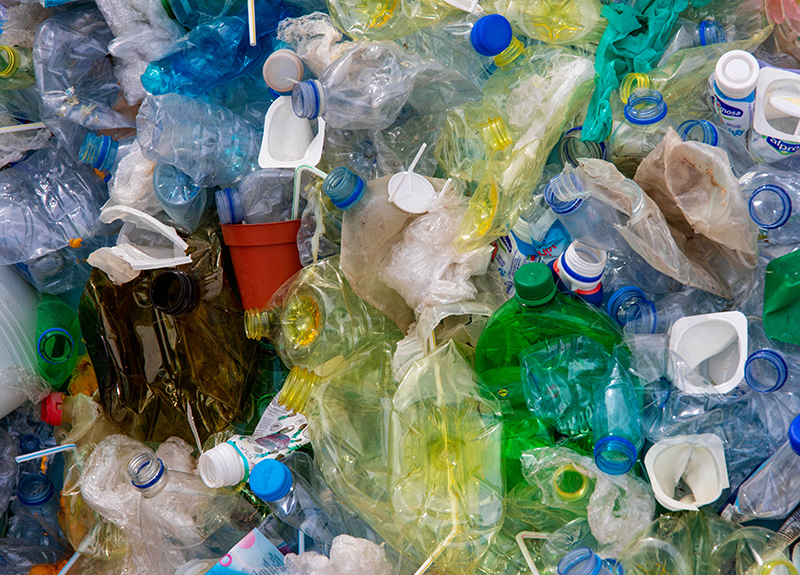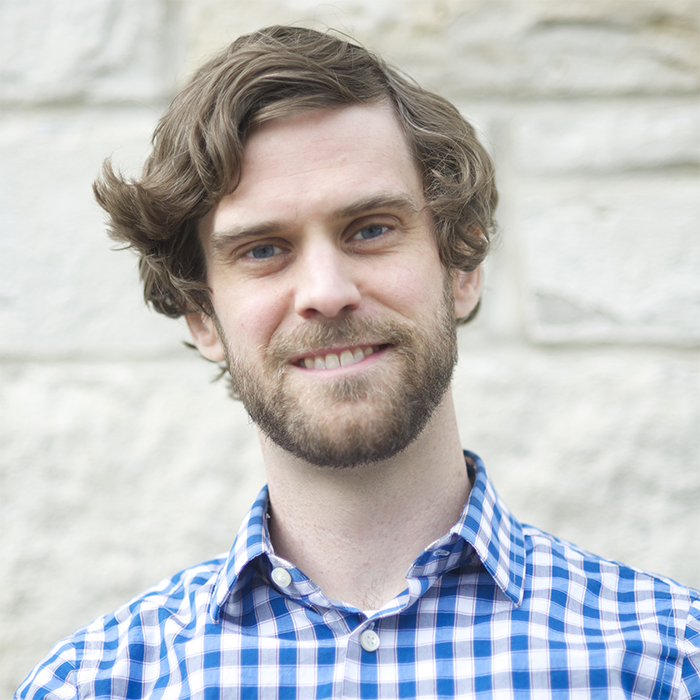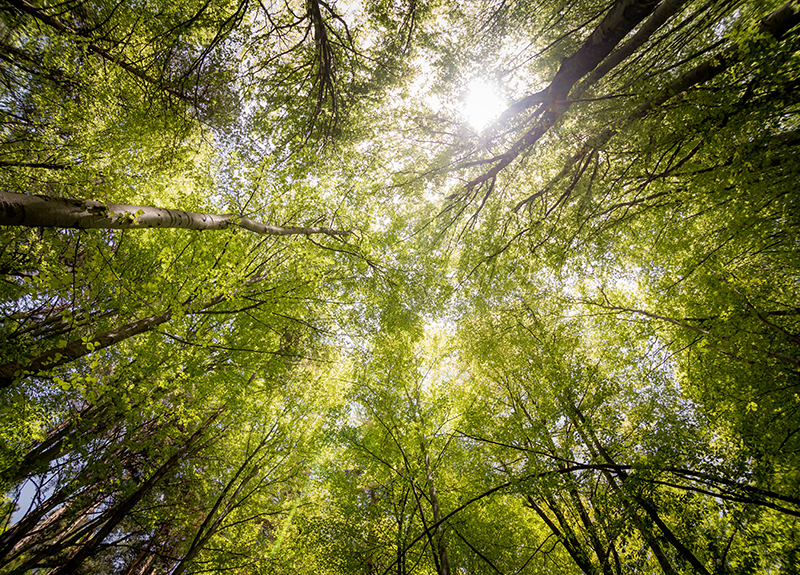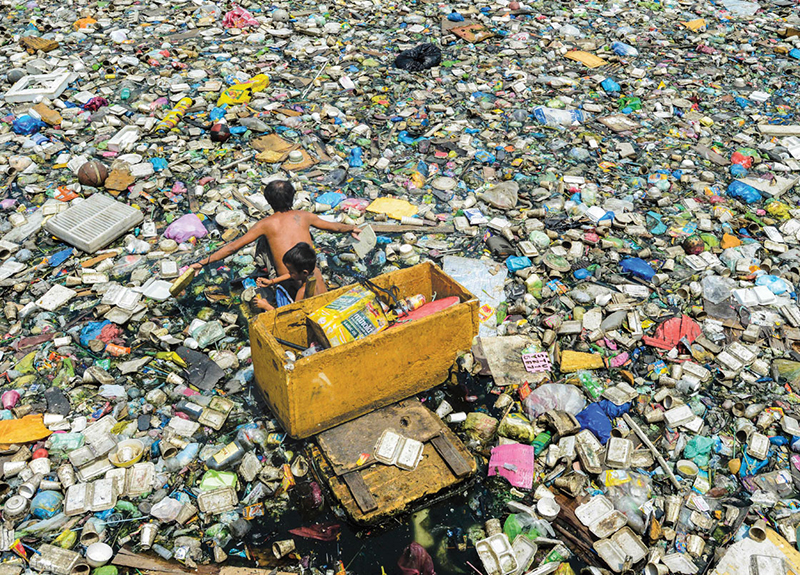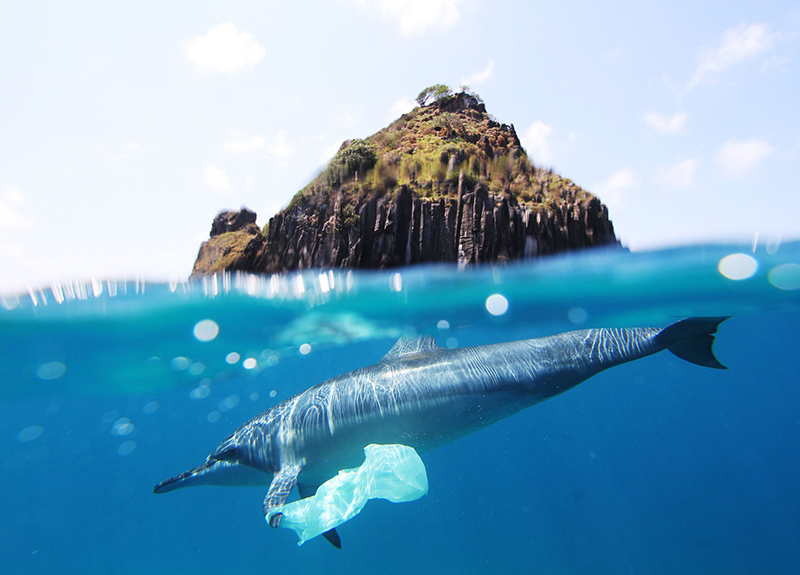Northwestern and World Wildlife Fund partner to address governance of plastic in the environment
Each year, at least 8 million tons of plastics pollution enter our oceans—which is equivalent to dumping the contents of one garbage truck into the ocean every 60 seconds. Because plastics were designed for uses that require resistance to degradation, most types of the material never fully break down in the environment, often to the detriment of ecosystems. The long term effects of human consumption of microplastics—increasingly found in our food and drinking water—also remain unclear.
In order to develop public policy solutions that adequately address these mounting environmental pressures, World Wildlife Fund (WWF) recently partnered with the Northwestern University Pritzker School of Law Environmental Advocacy Center (EAC) on a new experiential learning project. The semester-long project was offered through the Environmental Advocacy Clinic course, which pairs clients and organizations like WWF with law students who provide real-world legal assistance under the tutelage of Northwestern legal experts and professors.
“We asked Northwestern to help us better understand existing waste management laws and regulations at the federal level, and how they could be adapted to improve the way we handle plastics,” says Anthony Tusino, Associate for Policy and Government Affairs at WWF. As one of the world’s leading environmental organizations, WWF’s “No Plastic in Nature” initiative aims to eliminate the leakage of plastic into nature by 2030.
Cameron Thomas, a second-year law student at Northwestern, led the legal analysis with support from EAC director, Professor Nancy Loeb, and Montgomery Environmental Law Fellow, Cary Shepherd. With regular input from her EAC advisors and policy experts at WWF, Thomas spent the fall semester studying the best current legislative models for dealing with plastic pollution and waste and looked at what it would take to make them a reality in the US.
“The prospect of working with WWF was exciting because I’ve been familiar with the organization for a long time and know about all the incredible work they do,” says Thomas.
Thomas presented her final report to WWF in December, which was comprised of two parts. First, she provided a baseline analysis of the usage of plastics across different sectors of the US economy to better understand how waste is currently generated and managed. Next, she used this baseline analysis to provide WWF with a piece of federal model legislation aimed at addressing plastic pollution.
“This project taught me more about the intricacies of what government can and can’t do, the balance of federal and state authority, and the relationship between the Environmental Protection Agency and the legislature,” Thomas explains. “It gave me a valuable and practical view of the law that I wouldn’t have had the opportunity to see otherwise.”
“If this project is used for future discussions of plastics policy on a national level—which we expect that it will be—it really could shape the future of plastics legislation in the United States.” — Cary Shepherd, Montgomery Environmental Law Fellow at Northwestern Law
The structure of EAC’s experiential learning model means that projects like Thomas’ are not merely an academic exercise. Students gain real-world experience in client relationship management—regularly discussing a client’s needs and goals as well as the best ways to accomplish those goals. The influence of the final work product also goes well beyond the classroom setting, informing the legal and policy decisions of partner organizations like WWF.
“The legislation we’re proposing here addresses every element of the chain of plastics production and disposal,” says Shepherd of EAC, who advised Thomas in her work with WWF. “If this project is used for future discussions of plastics policy on a national level—which we expect that it will be—it really could shape the future of plastics legislation in the United States.”
“The work product from Northwestern was extraordinary and detailed,” adds Tusino. “[Cameron and her advisory team] brought in a lot of great expertise and research and really helped us on our path to developing our legislative agenda around this issue.”
This collaboration between Northwestern Law and WWF is an extension of the Program on Plastics, Ecosystems, and Public Health, a multi-institutional initiative at the university-wide Institute for Sustainability and Energy at Northwestern (ISEN).



